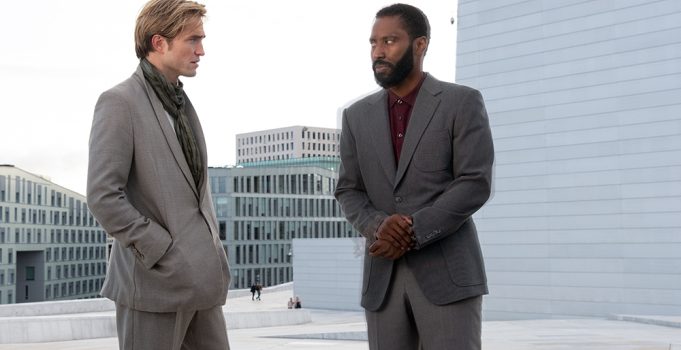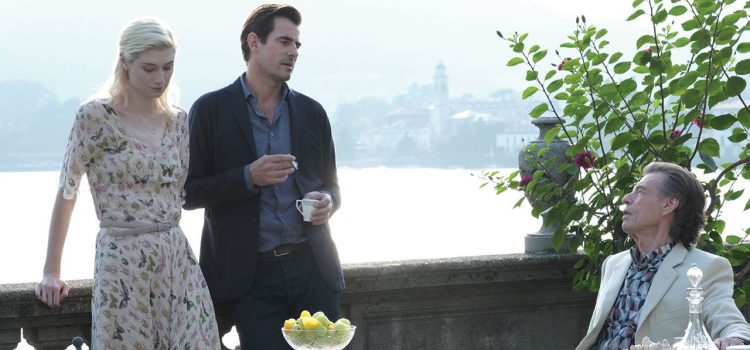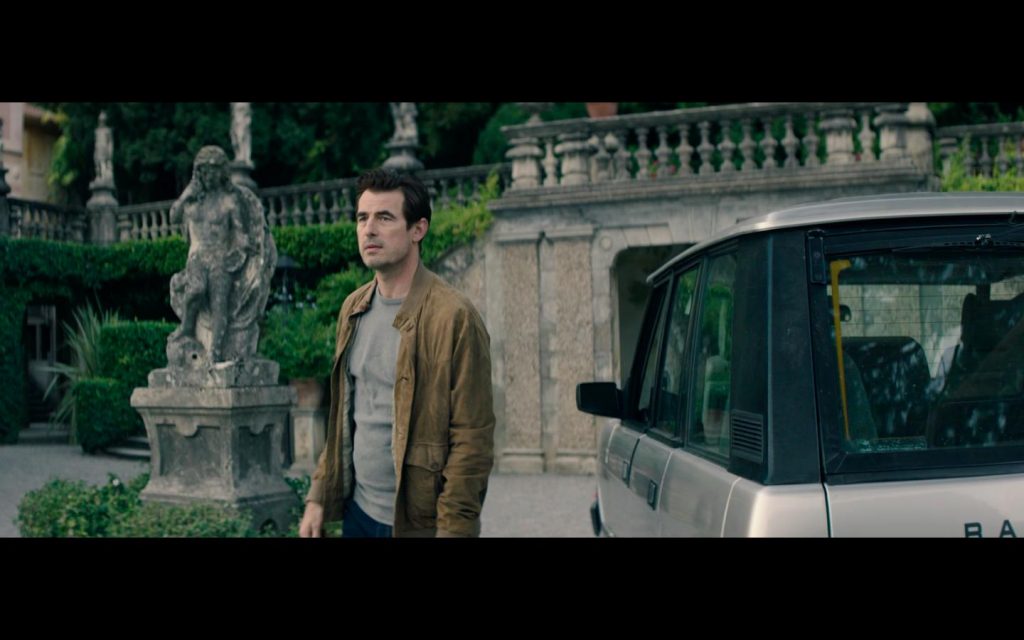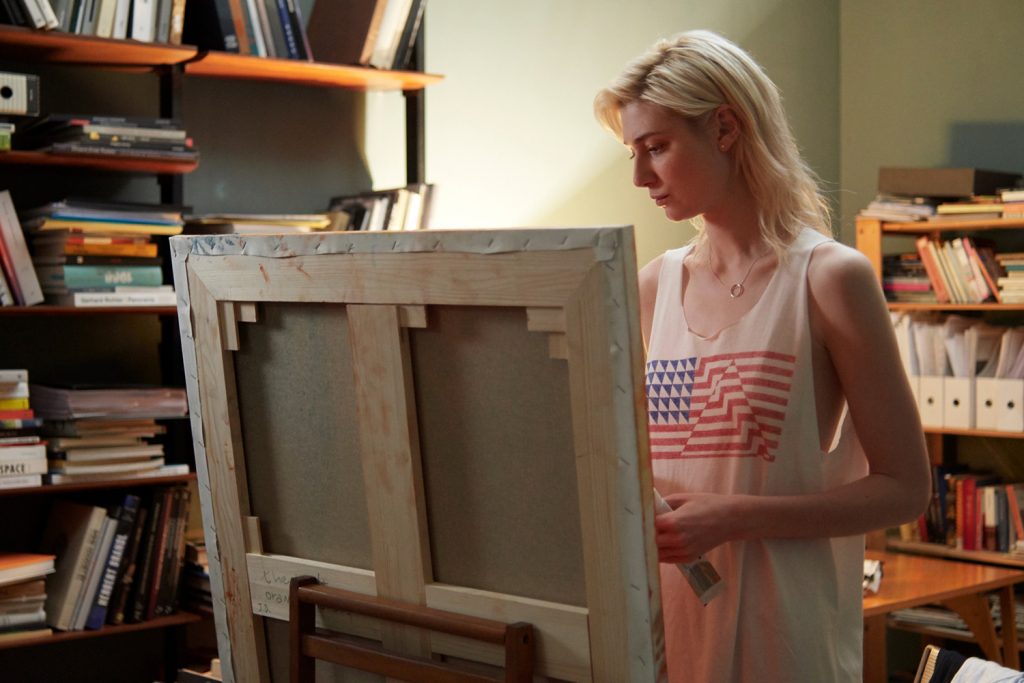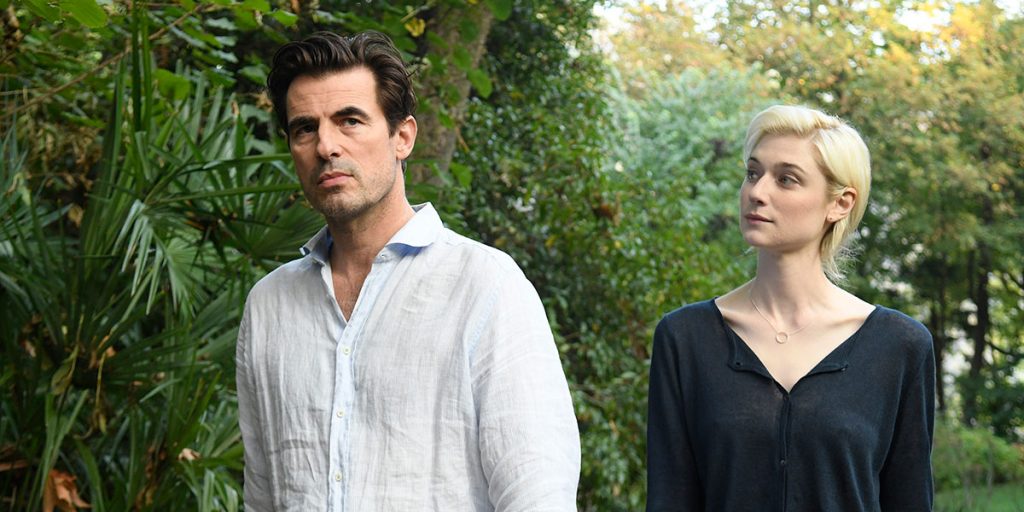By Lynn Venhaus
For all his technical brilliance, Christopher Nolan’s ambition and vision sometimes impede his screenplays from making sense. And despite its dazzling action scenes, “Tenet” can’t overcome an unwieldy time-travel plot to make us care – about the future, present or past on screen.
The dangerous time-bending mission is to prevent the start of World War III.
Basically, this jumbo-sized James Bond-type thriller, complete with fabulous gadgets and zippy globe-trotting, is complicated, trying to employ algorithms and explain inversion in its race to thwart doomsday. The layers are murky, the dialogue isn’t always convincing and the complexities lead to overthinking. By midway, it’s a lot to keep straight.
As a director, Nolan’s bombast and daring are unmatched today. And for every letdown like “Interstellar,” there is a masterpiece like “The Dark Knight.” That’s why I look forward to his films, and this one drew me into a theater for the first time since mid-March.
Its stunning set pieces – especially an airport scene and a highway car chase that features speeding cars going backwards, are quite something, and make it a blockbuster worthy of the big screen (and IMAX if you want the upgrade).
As a writer, Nolan’s obsession with puzzles, obviously one of his signatures, and his ability to frame a shot with the fanaticism of a Kubrick, is admirable, but he is often too cold and clinical. With little backstory, we aren’t sympathetic to the principal characters or drawn into their world, with the exception of Elizabeth Debicki, a strikingly beautiful and tall actress playing the Hitchcock blonde, art dealer Kat. She married a vicious oligarch and arms dealer Andrei Sator (Kenneth Branagh), who is keeping her estranged from her young son. And he has plutonium. And tons of money.
Branagh chews the scenery in a cartoonish role, and his thick Russian accent doesn’t help in deciphering his threats, as he attempts to be menacing with a steady monotone.
The Protagonist, John David Washington, seems miscast. As good as he was in “BlacKkKlansman,” he appears ill-at-ease here, and it’s not just in the fancy suits to convince others he has wealth. On the other hand, Robert Pattinson is fine as his handler, the mysterious Neil. We don’t know much about him by design, but he and Washington make a good pair.
Clues are dispensed in a frustrating fashion. Oh, there are many big ideas, paradoxes, secrets — and plenty of head-scratching, but by the third act, interest fades. At 150 minutes, it is not exactly taut, although the action is fluid. When military guys in shields show up in droves, and the visors make them unrecognizable, that is a problem.
Nolan is very serious here – maybe too serious. He is good at harrowing — it just always seems we are kept at a distance. Think of this as “Inception” times 10.
“People saw the world for what might have been,” one character says at the end. This did not help me in understanding.
I don’t go to movies to do math. And you shouldn’t have to see a movie again to figure it out, although I’m not sure a second viewing would help anyway, because the story is too convoluted, not to mention flat dialogue and sound-mixing issues.
The movie is very loud – but Ludwig Goransson’s musical score effectively ratchets up danger and suspense with its ominous tone. Goransson won an Oscar for the “Black Panther” score.
The Nolan production team is stellar – magnificent cinematography from Hoyte van Hoytema and smart, crisp editing from Jennifer Lame are among its virtues.
For all its pomp, “Tenet” was a victim of circumstance with its release delayed by the coronavirus global pandemic. It has pulled us back in to theaters, but its lack of connection makes the flaws stand out more than the spectacle.
“Tenet” is an action, suspense film written and directed by Christopher Nolan. It stars John David Washington, Robert Pattinson, Elizabeth Debecki, Kenneth Branagh, Michael Caine and Hamish Patel. Rated PG-13 for intense sequences of violence and action, some suggestive references and brief strong language. Run-time is 150 minutes. Released on Sept. 3 in movie theaters and IMAX.
Lynn’s Grade: C+ A version of this review was published in the Webster-Kirkwood Times.

Lynn (Zipfel) Venhaus has had a continuous byline in St. Louis metro region publications since 1978. She writes features and news for Belleville News-Democrat and contributes to St. Louis magazine and other publications.
She is a Rotten Tomatoes-approved film critic, currently reviews films for Webster-Kirkwood Times and KTRS Radio, covers entertainment for PopLifeSTL.com and co-hosts podcast PopLifeSTL.com…Presents.
She is a member of Critics Choice Association, where she serves on the women’s and marketing committees; Alliance of Women Film Journalists; and on the board of the St. Louis Film Critics Association. She is a founding and board member of the St. Louis Theater Circle.
She is retired from teaching journalism/media as an adjunct college instructor.

